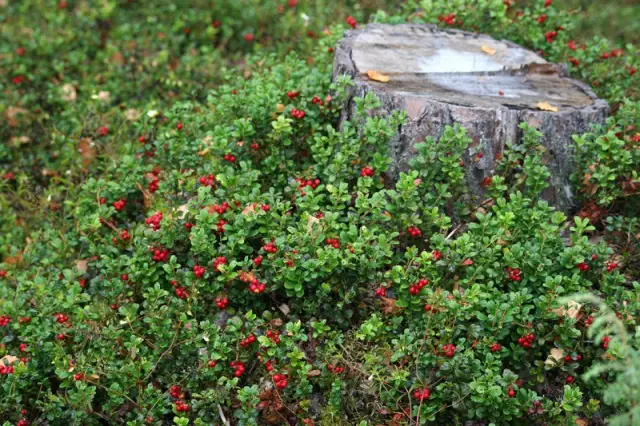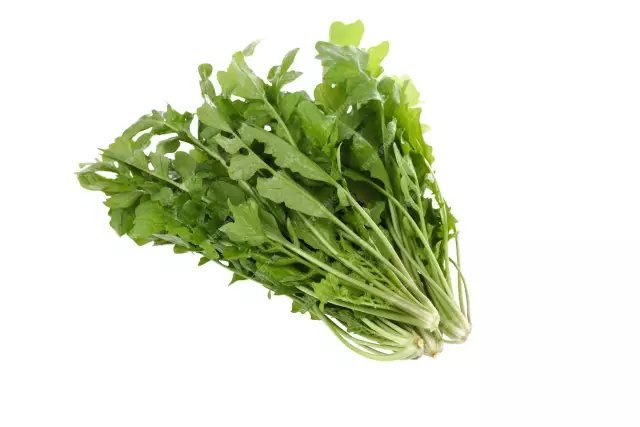- Author Rachel Wainwright wainwright@abchealthonline.com.
- Public 2023-12-15 07:39.
- Last modified 2025-11-02 20:14.
Blackberry
Blackberry is a perennial shrub of the Rubus genus, of the Rosaceae family. It grows mainly in the forest-steppe zone, in the floodplains of rivers, in coniferous and mixed forests.
The ratio of BJU in the product

Source: depositphotos.com How to burn 43 kcal?
| Walking | 11 minutes |
| Jogging | 5 minutes. |
| Swimming | 4 minutes |
| A bike | 6 minutes |
| Aerobics | 9 minutes |
| Household chores | 14 minutes |
Useful properties of blackberries
Blackberries contain vitamins B, K, E, A, P, sodium, magnesium, iron, nickel, potassium, phosphorus, chromium, titanium, manganese, calcium, iron, fiber, fructose, glucose, pectins, citric, malic acids. Thanks to this composition, blackberry fruits stimulate immunity, metabolism, and digestion.
Blackberry leaves contain astringents, vitamin C, amino acids and minerals, so they are useful for poisoning, gastrointestinal ulcers, dysentery.
Blackberry roots are known for their diuretic and astringent properties.
The calorie content of blackberries is 36 kcal per 100 g of berries.
Blackberry application
Regular use of blackberries is recommended for the prevention of vitamin deficiency, strengthening the immune system, treating kidney and bladder diseases. The berry is effective for inflammation of the joints, diabetes mellitus.
In addition, the beneficial properties of blackberries help to improve memory, blood circulation in the brain, and prevent the formation of malignant tumors.
Regular use of blackberries has a beneficial effect on health, the state of the nervous system, ensures healthy sleep, and reduces anxiety.
Unripe blackberries can be used for constipation, and ripe, on the contrary, for diarrhea.
With shortness of breath, neurosis, a decoction from the branches of the plant helps.
Blackberry leaves are brewed and drunk for anemia, nervous disorders, heart disease, gastritis. The constant use of decoctions from the leaves and fresh berries of blackberries helps to alleviate the condition of a woman during menopause.
Tea made from dried and fresh berries, as well as blackberry leaves helps with colds, infections, has a pronounced diaphoretic effect. It is noticed that decoctions and infusions of berries well quench the patient's thirst with fever.
Fresh blackberry juice is recommended to gargle to eliminate hoarseness.
Diabetics and people with high blood pressure are helped by a curative collection of blackberry leaves, shepherd's purse, sunflower petals and hop cones. For collection, the components are taken in the following parts: 3: 1: 2: 0.5. A drink is made from a mixture of herbs and drunk throughout the day.
Fresh blackberry leaves are also used externally - they help with old wounds on the legs and lichen.
Tincture of blackberry root is taken with poor digestion, bleeding, and a decoction from it is used for dropsy as a diuretic.
The juice from the roots helps with ascites, colitis, hemorrhoidal bleeding, liver pathologies. Take it three times a day, adding honey.
A decoction of blackberry roots helps with respiratory diseases, angina - it is used as a means to gargle a sore throat.
The berries are harvested from July to September. To preserve the harvest, it can be stored in the cold, no more than 7 days.

Since the beneficial properties of blackberries are preserved in dry berries, you should take care of harvesting them for the winter. You can dry only ripe berries, which are first kept in the sun, and after three days they are dried in the oven (for a start, set the temperature to 70 ° C, then lower it to 50 ° C). You can store dried berries for two years.
Frozen blackberries also retain useful properties. Only ripe berries are suitable for freezing, which should be peeled, washed, dried on paper or cloth and placed in the freezer. After freezing, for ease of use, the berry is poured into small bags and tightly tied.
Contraindications
Blackberries are contraindicated only in case of individual berry intolerance. Therefore, at the first use, it is recommended to eat a small amount of blackberries, especially for children. Signs of berry allergy: diarrhea, swelling of mucous membranes, vomiting, dizziness, nausea. In some cases, there is a violation of breathing and cardiac activity.
YouTube video related to the article:
Found a mistake in the text? Select it and press Ctrl + Enter.






